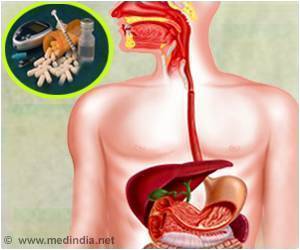Alcohol promotes faster development of fibrosis and progression to cirrhosis in people with hepatitis C, making drinking a dangerous and often deadly activity.

‘The implementation of behavioral screenings to identify at-risk drinking among both hepatitis C-infected and uninfected individuals could prevent alcohol abuse and serve as a platform to educate patients on the associated risks.’





"Alcohol promotes faster development of fibrosis and progression to cirrhosis in people living with hepatitis C, making drinking a dangerous and often deadly activity," said lead investigator Amber L. Taylor, MPH, from the Centers for Disease Control and Prevention's Division of Viral Hepatitis. "In 2010, alcohol-related liver disease ranked third as a cause of death among people with hepatitis C." In order to better understand the link between alcohol use and hepatitis C, investigators examined self-reported alcohol use in relation to hepatitis C status. Using information from the National Health and Nutrition Examination Survey (NHANES), researchers looked at hepatitis C infection rates for four groups: lifetime abstainers, former drinkers, non-excessive current drinkers, and excessive current drinkers. They found that two groups - former drinkers and excessive current drinkers - had a higher prevalence of hepatitis C (2.2 percent and 1.5 percent, respectively) than lifetime abstainers or current non-excessive drinkers (0.4 percent and 0.9 percent, respectively).
A follow-up survey of people who participated in NHANES 2001-2008 and who tested positive for hepatitis C antibodies (indicating they had been infected at some point in their lives) found that 50 percent were unaware of their hepatitis C status before being notified of their positive test by NHANES, mirroring the national trend.
"Half of all people living with hepatitis C are not aware of their infection nor the serious medical risks they face when consuming alcohol," said Taylor. "This highlights the need for increased diagnosis as well as comprehensive and effective interventions to link hepatitis C-infected individuals to curative treatments now available and provide education and support needed to reduce alcohol use." CDC recommends a one-time hepatitis C test for everyone born during 1945-1965, and explicitly recommends screening for alcohol use among individuals who test positive.
The new information provided by this study helps shed more light on the level of alcohol consumption among those living with hepatitis C. It can help guide best practices for both treating patients and steering possible interventions. "The implementation of behavioral screenings to identify at-risk drinking among both hepatitis C-infected and uninfected individuals could prevent alcohol abuse and serve as a platform to educate patients on the associated risks," concluded Taylor. "Targeted strategies should emphasize testing to increase hepatitis C awareness among undiagnosed people, prevent disease progression, and ultimately link those infected to curative lifesaving treatments."
Advertisement















